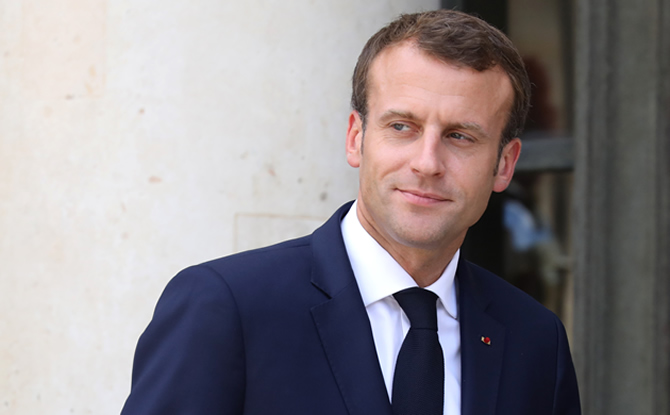President Emmanuel Macron on Wednesday placed responsibility on parliament to negotiate a broad coalition reflecting France’s “republican institutions” to break the deadlock following an inconclusive snap election.
“Nobody won,” Macron said in a written message to voters published in French regional newspapers regarding the election.
“I am asking all political forces who identify with the republican institutions, the rule of law, parliamentary democracy, a European orientation and the defence of France’s independence, to begin a sincere and fair dialogue to build a solid, and by definition pluralist, majority,” Macron stated.
The formulation appeared designed to exclude Marine Le Pen’s far-right RN party, but also implicitly Jean-Luc Mélenchon’s far-left France Unbowed (LFI), a significant part of the left-wing New Popular Front (NFP) alliance.
The election called by Macron with the aim of “clarifying” the political landscape ended up leaving France with a hung parliament.
Centrists allied with Macron were looking on Wednesday for an alliance with the right to counter ambitions by the NFP, which emerged, surprisingly, with the most seats in the National Assembly.
Prime Minister Gabriel Attal’s government will remain in power as Paris makes final preparations for the Olympics, starting in just over two weeks.
However, Attal’s centrist group in parliament lost ground, and the hunt is on for his successor.
French leftists believe that as the largest bloc in the new National Assembly with some 190 seats, they are entitled to propose a new prime minister.
“The president refuses to recognise the results of the ballot box which put the New Popular Front ahead in terms of votes and seats,” said Mélenchon in a social media post in reaction to Macron’s message.
Macron, Mélenchon insisted, had to “accept defeat” at the hands of the leftist alliance.
‘Beyond reproach’
The president’s Renaissance outfit, meanwhile, appeared divided as it sought allies in the lower chamber, with some seeking to include forces ranging from the centre-left to the right in a broad coalition, and others only wishing to join forces with conservatives.
Until Wednesday’s letter, Macron had kept a low profile following the election and was away on Wednesday for a NATO summit in Washington.
Interior Minister Gérald Darmanin, who was also re-elected, told the CNews broadcaster he could support a “right-wing prime minister”.
Any contender would have to survive a confidence vote in parliament when it opens for business next week.
The broad leftist NFP alliance, including Greens, Socialists, Communists, and LFI, has said they would suggest a candidate for prime minister by the end of the week.
Divisive LFI leader Mélenchon has put forward 33-year-old Clémence Guetté, who prepared his programme when he ran for president in 2022.
The more moderate Socialist leader Olivier Faure has also said he would be willing to lead a cabinet himself.
Despite doing less well than expected, the anti-immigration RN and allies still gained ground in the National Assembly, from 89 seats in 2022 to more than 140 today.
Winning an absolute majority “has only been postponed,” Le Pen told reporters, calling the parliamentary manoeuvres an “unworthy circus”.
The party’s 28-year-old leader, Jordan Bardella, accused Macron of “organising the paralysis of the country by bringing the far left to the gates of power through shameful arrangements.”
“Now his message is: ‘Figure it out yourselves’,” he said.
On the left, Raphaël Glucksmann, founder of progressive leftist movement Place Publique, said “parliamentary democracy” would be the only way forward for his camp.
“We’re going to have to talk to people we’ve fought against, without abandoning our convictions, and convince them,” he told Nouvel Obs magazine.



